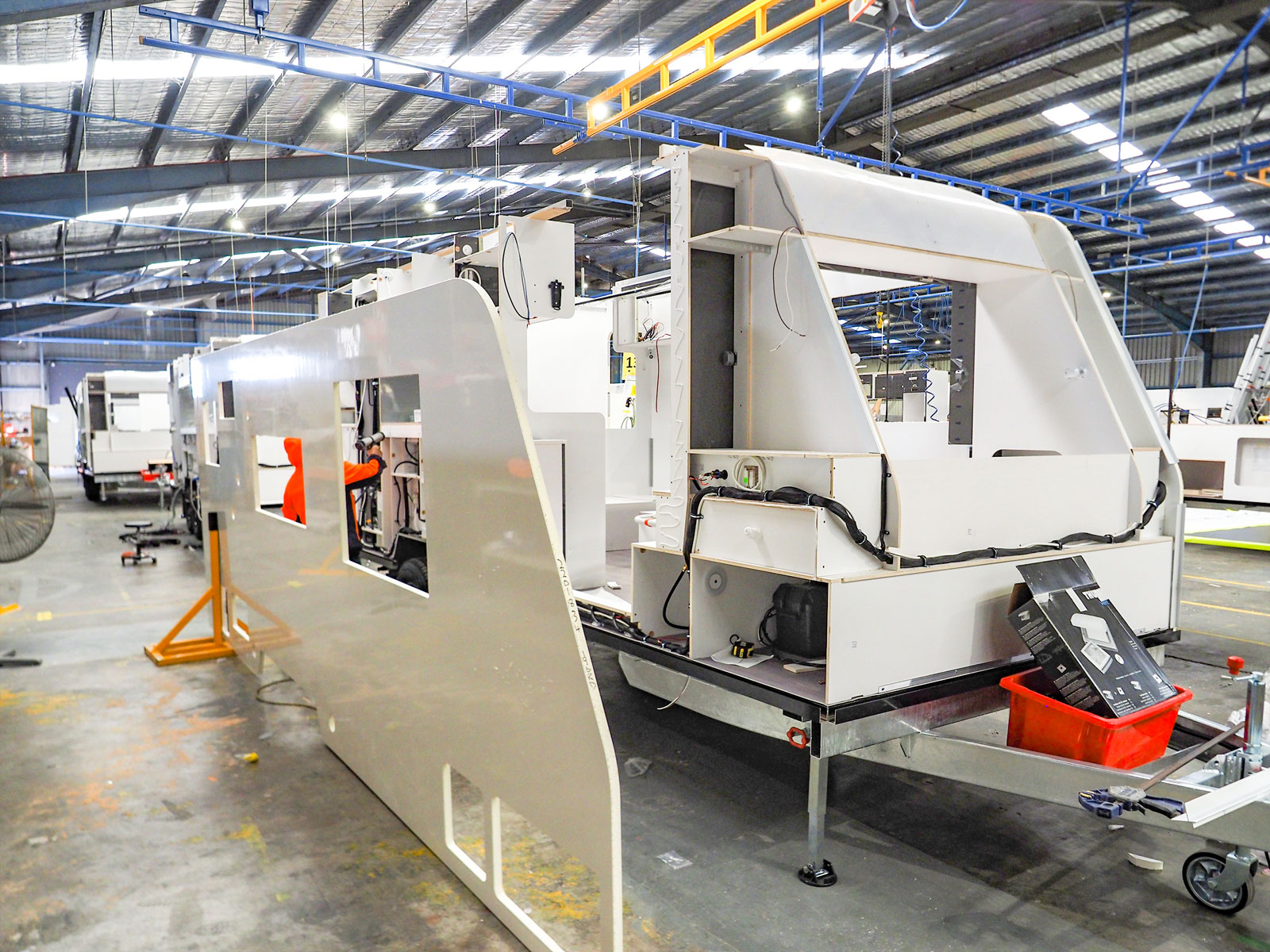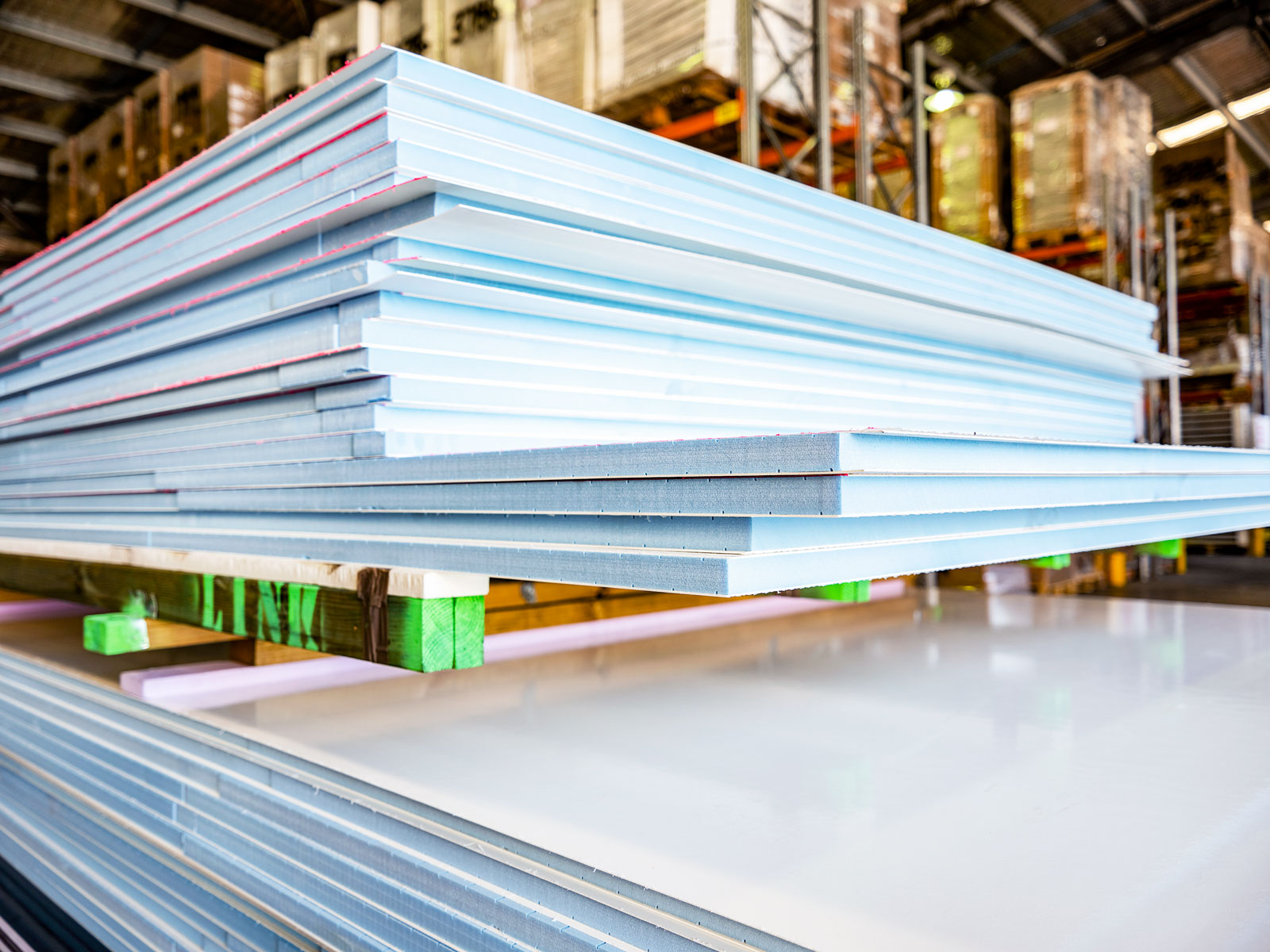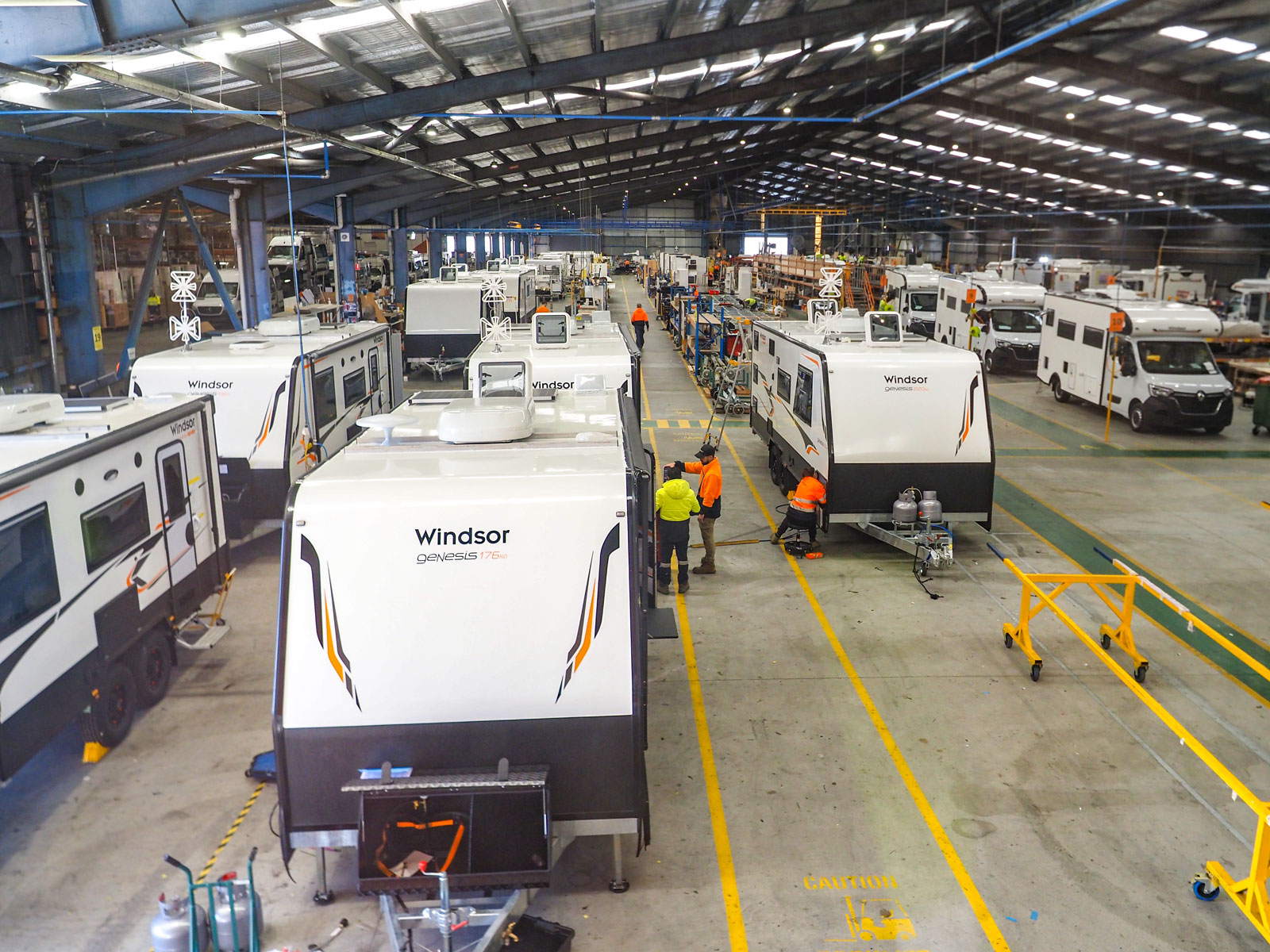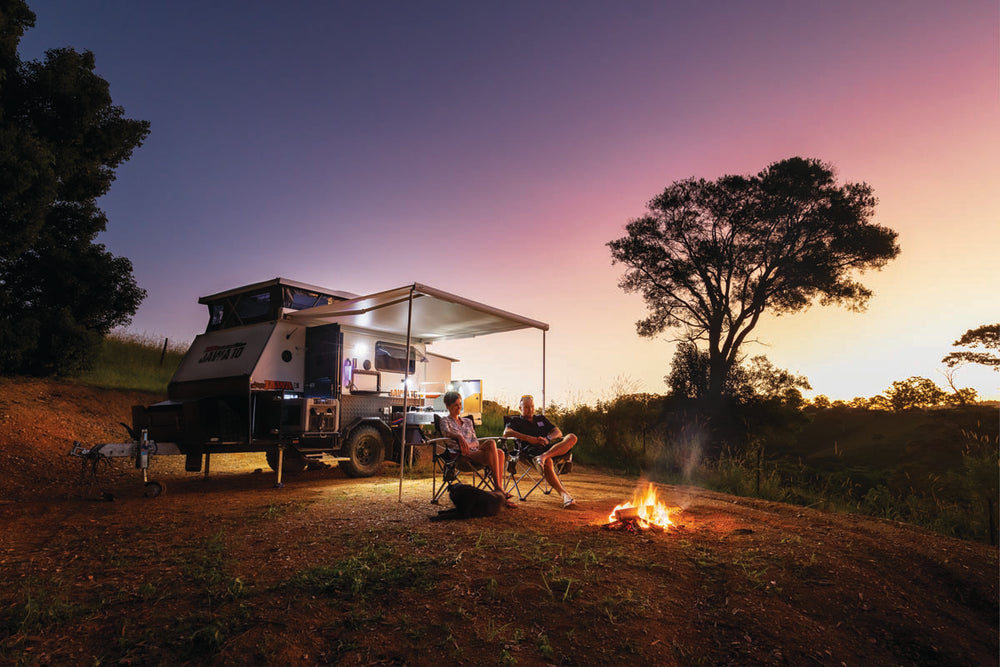Composite Construction Caravans with Apollo RV

Australia’s caravan industry has a long history. The first rudimentary models rolled out of sheds in the late 1920s. By the late 40s small factories produced lightweight timber-framed caravans towed by the basic family sedans of the day. Those early vans were what we now call a traditional Australian build, where aluminium cladding covers a light timber frame that’s stapled together. The walls and a similar construction roof are then screwed together with silicone sealing the joins. Many builders still employ this process almost universally, using imported Meranti timber as the medium.
In this world of traditionally made caravans, Queensland manufacturer Apollo stands out as a switched-on builder employing modern building techniques.
Apollo has years of experience with vans and motorhomes, taking over the Windsor and Coromal names two years ago to become one of our largest caravan manufacturers. Their brands have boasted composite “sandwich’ panels for the body construction for many years. This technology has been proven in European and American RV for years and use the same principles of technology as sandwich panels applied in aeronautics, road vehicles, ships, and civil engineering industry.
The panels are named for their sandwich construction, where a layer of lightweight foam is sandwiched with high-quality glues between two thin fibreglass skins. This combination delivers a solid and robust panel able to absorb traction and compression forces in the fibreglass and shear and thrust in the core. In other words, the panels are exceptionally strong and durable, with high impact resistance and load-carrying capacity. The material is also lightweight and easy to repair in the event of an accident.

Each element of the composite construction combines to give the panel its uncanny level of strength and rigidity. The fibreglass facings resist bending along its surface area, while the core supports the skins to prevent buckling. At the same time, the adhesive is essential to make the panel work effectively. In combination, each part creates an enormous mechanical advantage of stiffness and strength.
An added advantage of sandwich panel design is that there is only a minor weight penalty for increased thickness to improve thermal and acoustic insulation.
Composite panels significantly benefit caravan construction, where weight is an overriding design principle. A lighter van is easier to tow, saves on fuel costs and can add a bigger payload. But importantly, the thermal and sound insulation is superior to other methods.

Apollo’s panels are locally made and cut on large CNC machines to form the external shape and the openings for the door, windows and various hatches. The CNC process outputs millimetre-perfect panels that enable close-fitting components for optimum sealing properties for weather protection.
During construction of the vans, the composite panels of the walls, roof and floor form a monocoque body using a permanent adhesive and aluminium brackets at the edges for added strength. Once glued and covered with a weather seal, the caravan body is solid and has highly effective weather protection.

Compared to timber and aluminium frames, the sandwich panel is stiffer, so there is less movement across the caravan body. Over time, composite construction has superior durability, offering years of service.
THE NEXT STEP
If you need help choosing your first RV or are considering upgrading your existing one, check out Apollo RV van range available on TradeRVs today.
The sellers will be happy to help and answer any inquiries you may have about the products advertised for sale.
RELATED ARTICLES:
BEGINNER CARAVANNING GUIDE - WHAT TO DO WHEN YOU’RE STARTING OUT







